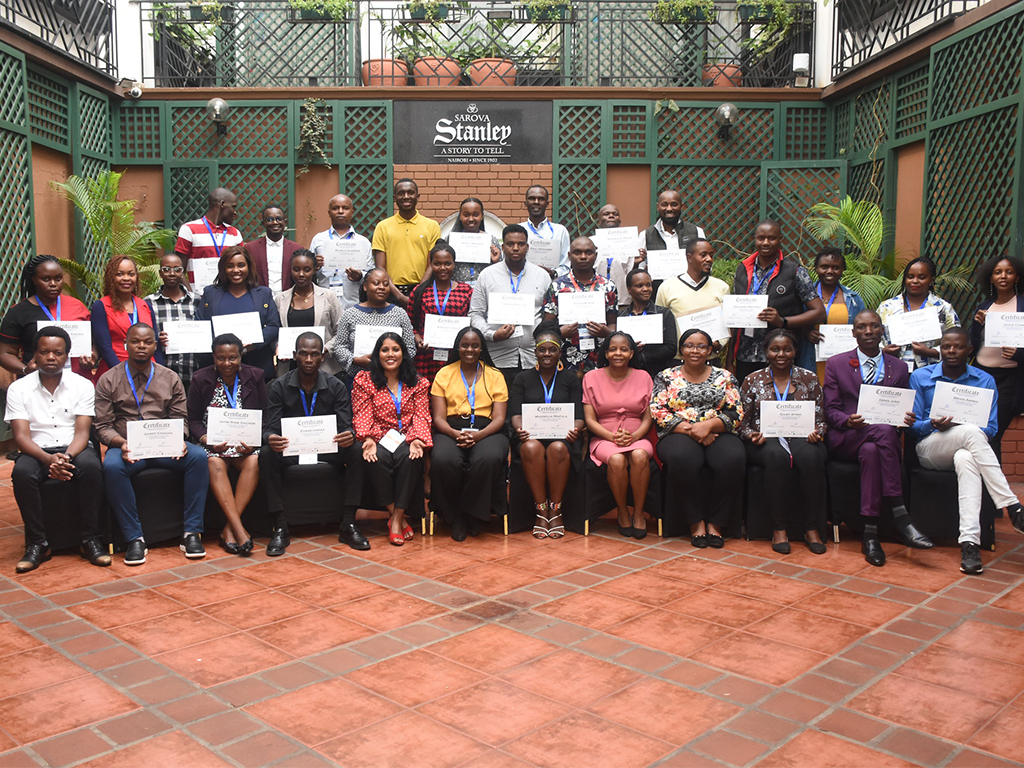Over 50 journalists certified to cover stories on Air Pollution in Nairobi have been urged to observe keenly and shift their focus of reporting if they are to influence change in the society.
Speaking to the trainees who converged at the Stanley under Climate Air Catalyst, the trainers challenged the journalists, predominantly who report on Climate and health, to quit reporting over the same old issues whose solution, despite being outlined, have never been implemented.
“Think outside the box. Most stories that we receive from journalists are dead to air pollution. Not that there no pollution to your focal areas, but there are not new angles from them.” Stella Paul, the Environment and Health Project Officer lamented.
While it was evident that the standard of atmospheric air has been lowered courtesy of human activities and neglect by authorities to enforce set guidelines, the scribes admitted to overlooking critical tenets of air pollution that if not reported, then many lives will remain at stake.
The journalists were under several units including gender reporting and data journalism where they interacted with numerous sources of air pollution and finding in the 18 sub counties in Nairobi.
This as Jacky Ludibwi, the project coordinator with Internews, urged the writers of data to critically scrutinize these information so as to find accurate and timely deciminations, that will not lock out the marginalized in the county.
According to the latest statistics by city hall and environmental organizational including UNEP Air pollution is a silent threat to human life.
Evidenced by depleting ozone layer hence more action on climate, middle to high income Kenyans are also susceptible to adverse health attacks. Reduced agricultural cover, fading away of wildlife, pollution of oceans notwithstanding.
“We cannot be reporting on pregnant women living in Kawangware or Kibera every day, we know their issues. Now target on how pollution is affecting the changemakers.” Stella added, ” if the authorities are not alive to how air pollution affects them, they will not address the effects on their electorate.” She finalised.
The two days training centered on solutions, impact and sources of air pollution as it sought to equip the scribes with the necessary skills to disseminate the knowledge to the common mwananchi.
The training aligns with the Kenya Kwanza ambitious plan of reviving the Kenya’s green cover which is under attack from carbon emissions and irresponsible environmental activities.
President William Ruto has pledged to ensure over 50 billion trees are planted by 2030 to restore forest cover and climate

